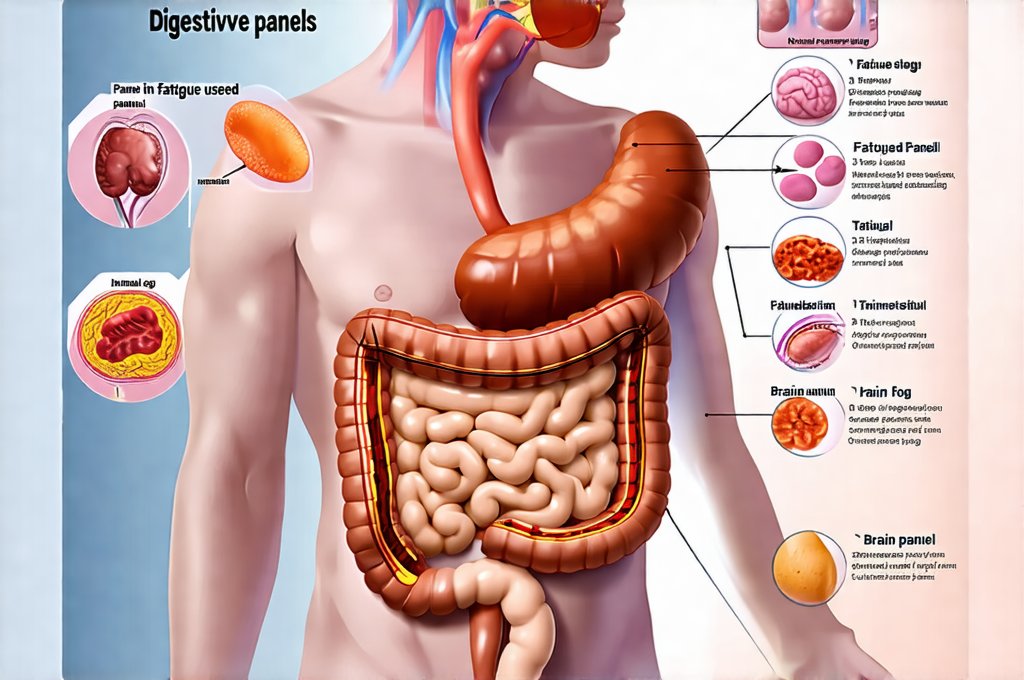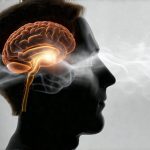Chronic fatigue and brain fog are debilitating symptoms impacting millions worldwide, often leaving individuals struggling with persistent exhaustion, difficulty concentrating, and impaired cognitive function. These aren’t simply signs of being tired; they frequently point to underlying imbalances within the body that demand investigation. While many factors can contribute – stress, sleep deprivation, psychological distress – an increasingly recognized source lies within the digestive system. The gut-brain axis, a complex bidirectional communication network linking the gastrointestinal tract and the brain, plays a pivotal role in overall health, and disruptions here can manifest as both physical and mental fatigue. Identifying these imbalances requires going beyond standard blood tests and delving into more specialized assessments.
Digestive panels are becoming increasingly valuable tools for uncovering hidden issues that may be fueling fatigue and brain fog. These comprehensive sets of tests examine various aspects of digestive function, including gut microbiome composition, intestinal permeability (“leaky gut”), enzyme production, nutrient absorption, and markers of inflammation. They’re not about finding a single “bad guy,” but rather understanding the intricate interplay of factors contributing to dysfunction. It’s important to remember that digestive panels are best interpreted within the context of a person’s overall health picture – symptoms, lifestyle, medical history, and other relevant tests. Their results aren’t meant for self-diagnosis; they provide valuable information for healthcare practitioners to develop personalized strategies for support and recovery.
Understanding Digestive Panels: What They Test For
Digestive panels vary in scope depending on the laboratory and the specific concerns being investigated. However, most aim to assess several key areas that are commonly implicated in fatigue and brain fog. One crucial component is microbiome analysis, typically performed using 16S rRNA gene sequencing. This technique identifies the types of bacteria present in the gut and their relative abundance, providing a snapshot of the gut’s ecosystem. A healthy microbiome boasts diversity – many different species working together – while imbalances (dysbiosis) can be linked to inflammation, impaired nutrient absorption, and altered neurotransmitter production. Another essential element is assessing intestinal permeability. This measures how well the intestinal barrier functions in preventing undigested food particles, toxins, and pathogens from entering the bloodstream. Increased permeability (“leaky gut”) triggers immune activation and systemic inflammation, which can contribute significantly to fatigue and cognitive dysfunction.
Beyond microbiome and permeability, digestive panels often evaluate digestive enzyme production – pancreatic elastase, for example, indicating how well the pancreas is breaking down proteins. Deficiencies in these enzymes hinder nutrient absorption and lead to maldigestion symptoms like bloating, gas, and diarrhea. Nutrient absorption tests assess levels of key vitamins (D, B12), minerals (iron, magnesium), and amino acids – deficiencies in these nutrients are commonly associated with fatigue and brain fog. Finally, many panels include markers of inflammation such as calprotectin and secretory IgA, providing insight into the level of immune activity within the gut.
These tests aren’t just about identifying problems; they’re about building a more comprehensive understanding of how your digestive system is functioning, which allows for targeted interventions to restore balance and optimize health. It’s also important to understand that these panels offer snapshots in time. The microbiome, in particular, can be influenced by numerous factors – diet, stress, antibiotics – so repeated testing may be necessary to track progress and refine strategies. Considering mini fasts can also support recovery.
Interpreting Results & Working with Practitioners
The results of digestive panels can seem overwhelming, filled with scientific jargon and complex data. This is where the expertise of a qualified healthcare practitioner becomes invaluable. They’re equipped to interpret the findings in light of your individual symptoms, medical history, and lifestyle factors, avoiding misinterpretations or unnecessary interventions. It’s crucial not to attempt self-diagnosis based on panel results. A practitioner can help differentiate between normal variations and clinically significant imbalances, guiding you towards appropriate support strategies. These might include dietary changes, targeted supplementation (probiotics, prebiotics, digestive enzymes), stress management techniques, lifestyle modifications, or further investigations if needed.
The emphasis should always be on restoring a healthy gut ecosystem and reducing inflammation. This isn’t typically a quick fix; it’s often a gradual process that requires consistency and patience. It’s also important to recognize that digestive panels are just one piece of the puzzle. Other tests – blood work, hormone testing, adrenal stress index – may be necessary to gain a complete picture of your health status. A holistic approach, addressing multiple contributing factors simultaneously, is often the most effective way to alleviate fatigue and brain fog. Furthermore, functional medicine practitioners are particularly well-suited for interpreting these panels due to their focus on root cause analysis and personalized treatment plans.
Gut Microbiome & Its Impact on Fatigue
The gut microbiome’s influence extends far beyond digestion. The trillions of microorganisms residing in our intestines play a critical role in immune function, neurotransmitter production, and even mental health. Dysbiosis – an imbalance in the gut microbiome – can disrupt these processes, contributing to fatigue and brain fog in several ways. For instance, certain bacterial species produce short-chain fatty acids (SCFAs) like butyrate, which are essential for nourishing colon cells, reducing inflammation, and supporting brain function. An imbalanced microbiome may result in decreased SCFA production, leading to impaired gut health and increased systemic inflammation.
Furthermore, the gut is where a significant portion of serotonin – often called the “happy hormone” – is produced. Imbalances in the microbiome can disrupt serotonin synthesis, potentially contributing to mood disorders, anxiety, and cognitive dysfunction. Some bacteria also directly influence the hypothalamic-pituitary-adrenal (HPA) axis, which regulates stress response. Dysbiosis can lead to HPA axis dysregulation, exacerbating fatigue and impairing resilience to stress. Restoring microbiome balance through dietary changes (fiber-rich foods, fermented foods), probiotic supplementation, and lifestyle modifications is often a key step in addressing chronic fatigue and brain fog. A diet rich in support foods can greatly assist this process.
Intestinal Permability & Systemic Inflammation
Increased intestinal permeability – “leaky gut” – allows undigested food particles, toxins, and pathogens to escape the gut and enter the bloodstream, triggering an immune response. This constant activation of the immune system leads to chronic inflammation, a hallmark of many chronic conditions, including fatigue and brain fog. The inflammatory molecules released by the immune system can cross the blood-brain barrier, directly impacting cognitive function. Symptoms such as difficulty concentrating, memory problems, and mental clarity are often associated with this neuroinflammation.
The consequences of leaky gut aren’t limited to inflammation; it also impairs nutrient absorption, further exacerbating fatigue and hindering recovery. The body may develop sensitivities to certain foods as the immune system reacts to them as threats. Identifying and addressing the underlying causes of increased intestinal permeability is crucial for restoring gut health and reducing systemic inflammation. This might involve identifying food sensitivities, healing the gut lining with specific nutrients (L-glutamine, zinc), and modulating the microbiome to restore a healthy barrier function. Understanding GERD’s link to inflammation is also valuable.
Addressing Nutrient Deficiencies & Malabsorption
Digestive panels often reveal nutrient deficiencies that contribute to fatigue and brain fog. Even if you’re eating a seemingly balanced diet, malabsorption issues can prevent your body from properly absorbing essential vitamins, minerals, and amino acids. For example, iron deficiency is a common cause of fatigue, while vitamin D deficiency has been linked to cognitive impairment. Magnesium plays a vital role in energy production and nerve function; deficiencies can lead to muscle weakness, fatigue, and brain fog.
B12 absorption can be impaired by various factors, including gut dysbiosis, autoimmune conditions, and certain medications. Addressing malabsorption issues requires identifying the underlying cause – enzyme deficiencies, gut inflammation, microbiome imbalances – and implementing targeted interventions. This might involve supplementing with digestive enzymes, probiotics, or specific nutrients to restore optimal absorption. It’s crucial to work with a healthcare practitioner to determine the appropriate dosage and form of supplementation based on your individual needs and test results. Remember that simply taking supplements without addressing the underlying cause won’t solve the problem long-term. Consider how foods cause these issues, too. A connection exists between digestive gas and brain fog as well. Finally, exploring soups and stews can be a gentle approach to improved digestion.


















